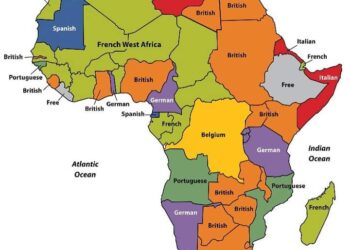Th e nation thought the issue or ghost of budget padding has been laid to rest for good since 2016 until the National Assembly members went to its grave and restored its life in 2017. And again the Executive has raised the alarm. Th e Acting President, Professor Yemi Osinbajo, must have reasoned that if he did not assent the 2017 Budget, the National Assembly (NASS) could blackmail him.
Besides, he was also mindful of the cabal within the government who think he lacks the authority to sign the budget even in his capacity as acting president. Under normal circumstances, if the budget was not padded, it should take the president less than a week to sign it into law. Apart from Osinbajo, who raised the dust over the 2017 Budget padding, Minister of Power, Works and Housing, Mr. Raji Babatunde Fashola, SAN, brought a clearer picture of this year’s alleged budget padding to the knowledge of the public. Th e minister claimed that in his ministry’s allocation, which he defended before NASS members, there was no inclusion of state roads, boreholes and primary health centers. And that over 100 of such projects were inserted into his ministry’s budget by NASS. Th en I began to wonder whether the ministries of health and water resources have been merged with the ministry of power, works and housing. In its usual defence, NASS members claimed that they have the right to pad the budget and that they are not the rubber stamp of the Executive. What an eff rontery and insult to the Nigerian electorate. Chairman of the Presidential Advisory Committee Against Corruption (PACAC), Prof Itse Sagay (SAN), rightly observed that federal legislators want to combine their legislative duties with that of the Executive.
Th e Legislature is supposed to make laws rather than usurp the functions of the Executive. So, the Legislature should serve as the auditor to ensure that the budget being proposed is properly defended vis-a-vis the expected income and proposed expenditure. In its wisdom, the Legislature can adjust the allocations to the diff erent sectors based on the outcome of the budget defence with ministers and heads of agencies. In our opinion, it is not the duty of legislators to pad the budget submitted to it without the knowledge of its author, the Executive. Th is is tantamount to forgery, which is criminal. If they feel strongly about any project(s) as representatives of their constituencies, they should convince the Executive about the desirability of such projects and not to abuse their privileges (not rights) as legislators to unilaterally insert such projects into the budget proposals submitted to them. Th is may be the major reason the nation’s landscape is littered with abandoned projects, which the Executive did not plan for because of the manner they were smuggled into the budget.
Th e audacity and eff rontery in padding Budget 2017 is the price that the nation is paying for not sanctioning those accused of padding the 2016 Budget. Some, especially from the National Assembly, were left off the hook because of their high-level connections. Little wonder these suspects have now developed tougher skin and mustered enough strength to justify their illegality. Th e Nigerian youth are being misguided to channel their youthful energies and passion into the wrong directions. Instead of allowing unscrupulous politicians to use them to cause disharmony, the youth should rather team up and use the power of their votes during elections to chase out the jesters from our Executive and Legislative arms of government. Majority of these jesters, who wore academic gowns during plenary session to prove a point and who are currently engaged in superiority contests, could be found in the National Assembly.
Th e youth should stop the war drumbeats. Rather, we challenge them to use constitutional means, the ballot, to replace these tired legs so that some fresh ideas/visions can be injected into our polity. However, when the youth get to the National Assembly, they should be rancour-free and avoid the temptation of padding the national budget, thus respect the principle of separation of powers. And in order to reduce or eliminate the internal rancour between the Senate and House of Representatives, it is high time one of them is scrapped for eff ective service delivery. In other words, we are advocating a unicamera legislature to replace the present bi-camera system that is bogus and a big fi nancial burden on the nation’s treasury.
Th e National Assembly members are expected and fashion laws that can free the nation from the likes of Evans, the kidnap kingpin. Unfortunately, our federal legislators are locked in superiority contest between the two houses, and between them and the Executive on matters that are clearly defi ned in the constitution. In fact, before it rescinded the decision, the Senate had attempted increasing the price of petrol by N5. And one begins to wonder if these “distinguished” senators are truly representing the interests of their respective constituencies. And few weeks later the Nigerian National Petroleum Corporation (NNPC) decided to crash down the price of diesel in order to bring down the cost of production and improve the general wellbeing of the masses.
We hope the corporation will proceed to reduce the price of kerosene and petrol. Th e National Assembly members should take a cue from this. Against the backdrop of the foregoing, it is high time we subjected the desirability of retaining the two legislative houses to national discourse. Do Nigerians need the two chambers that presently constitute our National Assembly in view of their declining productivity, increasing fi nancial burden on the nation and issues that border on the integrity of some members? We rest our case, having passed it to the court of public opinion.



